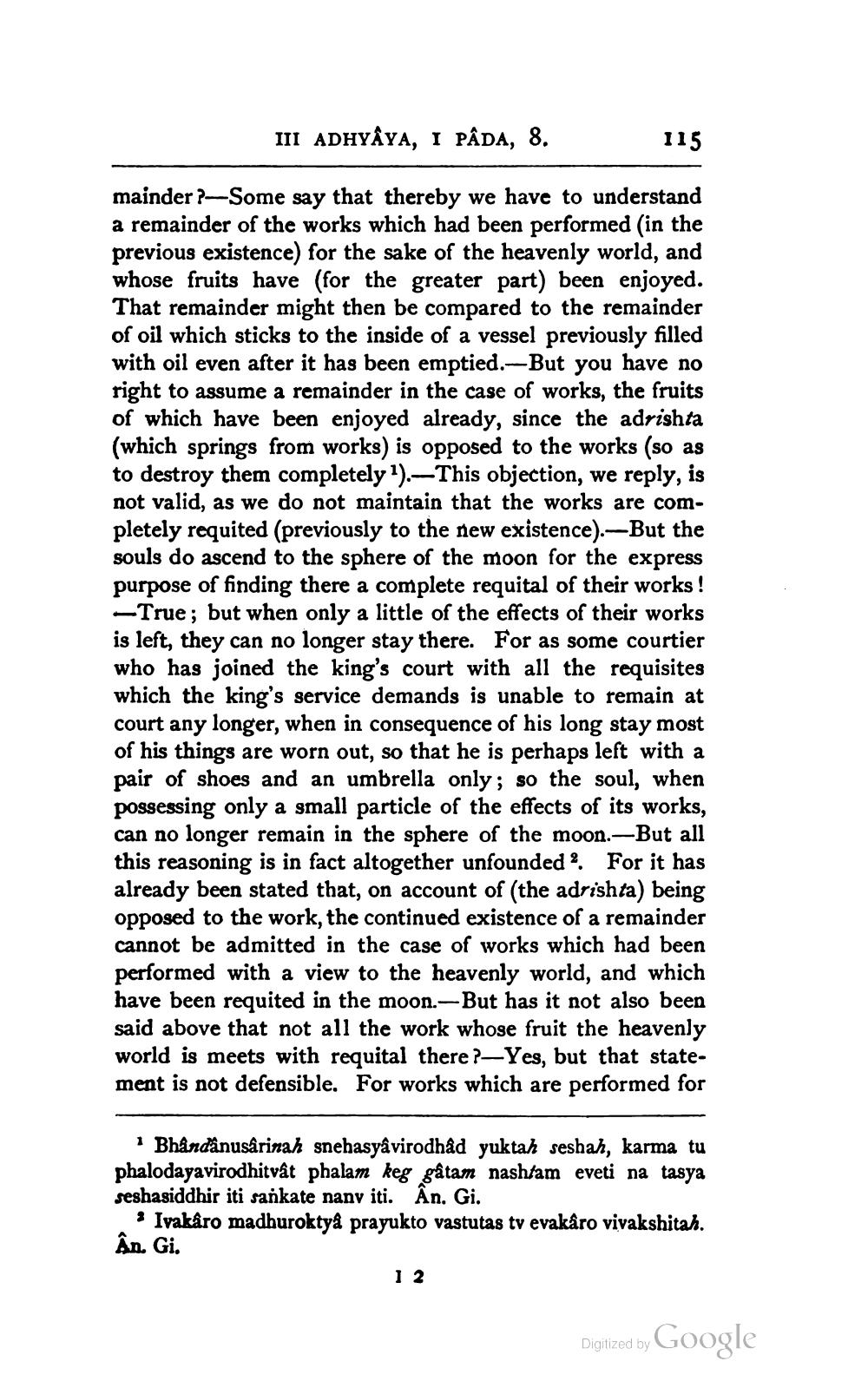________________
III ADHYAYA, I PÂDA, 8.
mainder ?-Some say that thereby we have to understand a remainder of the works which had been performed (in the previous existence) for the sake of the heavenly world, and whose fruits have (for the greater part) been enjoyed. That remainder might then be compared to the remainder of oil which sticks to the inside of a vessel previously filled with oil even after it has been emptied.-But you have no right to assume a remainder in the case of works, the fruits of which have been enjoyed already, since the adrishta (which springs from works) is opposed to the works (so as to destroy them completely 1).-This objection, we reply, is not valid, as we do not maintain that the works are completely requited (previously to the new existence).-But the souls do ascend to the sphere of the moon for the express purpose of finding there a complete requital of their works! -True; but when only a little of the effects of their works is left, they can no longer stay there. For as some courtier who has joined the king's court with all the requisites which the king's service demands is unable to remain at court any longer, when in consequence of his long stay most of his things are worn out, so that he is perhaps left with a pair of shoes and an umbrella only; so the soul, when possessing only a small particle of the effects of its works, can no longer remain in the sphere of the moon.-But all this reasoning is in fact altogether unfounded. For it has already been stated that, on account of (the adrishta) being opposed to the work, the continued existence of a remainder cannot be admitted in the case of works which had been performed with a view to the heavenly world, and which have been requited in the moon.-But has it not also been said above that not all the work whose fruit the heavenly world is meets with requital there?—Yes, but that statement is not defensible. For works which are performed for
115
1 Bhandanusârinah snehasyâvirodhâd yuktah seshah, karma tu phalodayavirodhitvât phalam keg gâtam nashtam eveti na tasya seshasiddhir iti sankate nanv iti. Ân. Gi.
3 Ivakaro madhuroktyâ prayukto vastutas tv evakâro vivakshitah. Ân. Gi.
1 2
Digitized by Google




